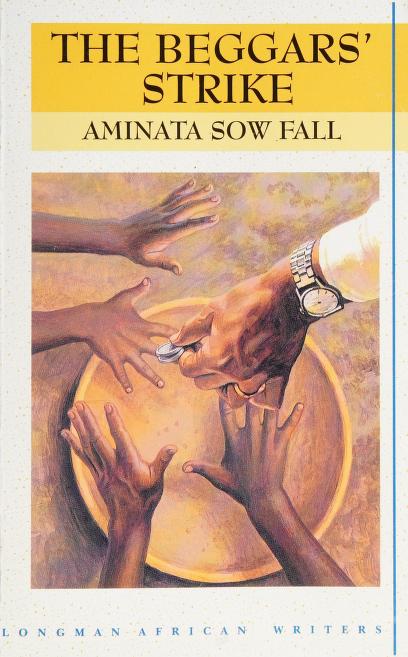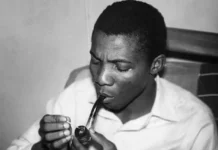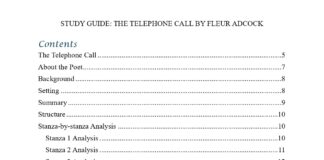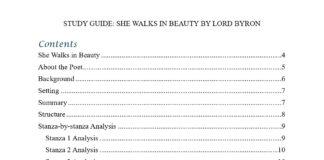Quality UTME Lessons for Art Students
Individual and group classes • Student-friendly rates
📞 Contact Ayomiposi on WhatsApp now
🎥 We’re cooking something delicious for you on our YouTube channel. In the coming days, you will learn SSCE literature texts like you're in class 📚✍🏽
Be part of this new journey we are about to embark on.
🔔 Subscribe Now
Plot Summary of The Potter’s Wheel
The Potter’s Wheel by Chukwuemeka Ike is set in the village of Umuchukwu during the Second World War and follows the coming-of-age story of Obuechina Maduabuchi, the only son in a family of seven children.
As the sole male child, Obu is the pride of the family, as evident in his name which literally means “the compound must not revert to bush.” It conveys his importance in continuing the family lineage.
Because of this, Obu is overprotected, especially by his doting mother, and grows up spoiled and entitled. While his sisters sleep on the floor, Obu shares a bed with his mother. He bed-wets, avoids chores, sleeps late, and shows no interest in household activities or personal development.
His father, Mazi Lazarus Maduabuchi, becomes alarmed by Obu’s lack of discipline and initiative. Concerned that his only son might grow up irresponsible, he decides to send Obu to Aka, a nearby town, to live and work as a houseboy under the strict and fearsome Teacher Zaccheus and his wife, Madam Deborah.
The decision is met with resistance from Obu’s mother, who sees it as cruel. However, Mazi Laza insists it is necessary to teach the boy the value of hard work and respect.
Life in Aka is nothing like Obu is used to. Teacher Zaccheus is known for his no-nonsense approach and is feared for his severe discipline both at home and at school. Obu quickly finds himself in trouble for various offenses: he puts too much oil in Madam’s cooking, talks back when corrected, and even steals meat from the soup pot. Each mistake results in firm punishment. At first, Obu struggles with the harsh routine, but gradually he begins to adapt.
Over time, Obu undergoes a dramatic transformation. He learns how to cook, clean, and handle domestic responsibilities. For instance, he surprises himself when he realises he can cook yam pottage with Utazi leaves and even admits that “cooking was not that mysterious after all.” He becomes more respectful, observant, and responsible. This shift marks the beginning of his journey from a pampered boy to a hardworking young man.
After a year in Aka, Obu returns to Umuchukwu for the holidays, and his transformation is obvious. He runs errands without complaint, assists his sisters with farm work, and fetches water from the river.
Even more surprisingly, when it’s time to return to Aka, he chooses to go back, this time unaccompanied by his mother. The novel ends with Obu firmly on the path to becoming a disciplined and mature young adult.

Themes in The Potter’s Wheel
Chukwuemeka Ike’s The Potter’s Wheel is rich with themes that speak directly to parenting, discipline, personal growth, and societal values.
Discipline: At the heart of the novel is the theme of discipline. The novel highlights the dangers of overpampering children, especially when parents allow emotions to cloud their judgment. Obu’s initial laziness, rudeness, and ignorance are direct results of his mother’s excessive affection and lack of boundaries. This is upturned by Mazi Laza’s decision to send Obu to Teacher Zaccheus for discipline. The author presents discipline as a necessary tool for proper upbringing. The transformation of Obu is proof that firm but intentional guidance can shape a child’s future.
Personal Growth: The novel is a classic bildungsroman, a coming-of-age story. Obu’s journey from a spoiled, idle boy to a responsible, self-aware young man captures the essence of personal growth. His year in Aka under tough conditions functions as a metaphorical “potter’s wheel,” where he is shaped through hard lessons and strict mentoring into a more refined individual. This theme emphasises that growth often comes from discomfort and correction.
Parental Roles: The Potter’s Wheel critically examines the role of parents in shaping their children’s future. Mazi Laza and Mama Obu represent two contrasting parenting styles: tough love versus emotional indulgence. Ike urges readers, particularly parents, to consider long-term values over short-term comfort. He subtly aligns his message with the biblical teaching from Proverbs 22:6 — “Train up a child in the way he should go…”
Hard Work: Another recurring theme is the importance of hard work. The novel teaches that every member of a household—and by extension, society—should contribute. Through proverbs like “Everybody who eats food must work for it,” Ike drives home the point that success is a product of effort. Obu’s eventual joy in helping with chores and running errands symbolises the dignity of labour and the value of self-reliance.
Cultural Wisdom: Ike infuses the narrative with African proverbs, riddles, and idiomatic expressions. These enrich the story with traditional wisdom. These sayings convey the community’s collective values and they also offer moral guidance on respect, obedience, and consequences. Proverbs like “There is no sweet without sweat” and “Nothing without labour” serve as both thematic anchors and cultural teaching tools.
Gendered Expectations: The novel also touches subtly on gender roles within the traditional African family. Obu’s privileged treatment stems largely from being the only male child. However, the story challenges the assumption that boys should be raised with less responsibility simply because they are heirs. Ike’s portrayal of Obu’s transformation suggests that all children, regardless of gender, must be held to the same standards of behaviour and accountability.

Character Analysis in The Potter’s Wheel
Chukwuemeka Ike brings The Potter’s Wheel to life through well-developed characters who reflect different parenting styles, moral values, and social expectations. Some of the characters in the text include Obuechina, Mazi Laza, Mama Obu, Teacher Zaccheus, and Madam Deborah.
Obuechina Maduabuchi (Obu)
Obu is the protagonist of the novel. As the only son of his family, he starts off as an indulged and pampered child who is spoiled by his mother’s love. Lazy, entitled, and immature, Obu has no sense of responsibility or interest in his surroundings.
However, his character undergoes a dramatic transformation after being sent to Aka to live with Teacher Zaccheus. There, he experiences strict discipline, hard work, and moral instruction. He goes from being a bed-wetting, idle boy to a responsible, helpful, and mature young man.
Obu’s character growth embodies the novel’s central theme of transformation through discipline.
Mazi Lazarus Maduabuchi (Mazi Laza)
Mazi Laza is Obu’s father and a voice of wisdom in the novel. He is a calm, practical, and morally upright person.
He recognises the dangers of his son’s pampered upbringing and makes the bold decision to send him away for strict training. His character demonstrates that good parenting sometimes requires tough choices.
Mama Obu
Obu’s mother is the emotional heart of the family. Her deep attachment to her only son leads her to overprotect and spoil him. She lets Obu sleep on the bed while her daughters sleep on the floor, and defends him even when he is clearly in the wrong.
Mama Obu’s actions, though rooted in love, cause more harm than good in Obu’s early development. Through her, Ike highlights how unchecked affection and parental favouritism can negatively affect a child’s growth.
Teacher Zaccheus
Teacher Zaccheus is the strict, no-nonsense disciplinarian who becomes Obu’s guardian in Aka. Feared by students and respected for his authority, he is known for his uncompromising standards both at home and at school.
Under his harsh but effective guidance, Obu learns discipline, respect, and responsibility. Zaccheus serves as the “potter” in the metaphorical potter’s wheel, shaping the “clay” (Obu) into a useful vessel.
His character represents the value of mentorship, structure, and moral leadership.
Madam Deborah
Madam Deborah, Teacher Zaccheus’s wife, is equally firm and meticulous in training Obu. Though not as feared as her husband, she is consistent in correcting Obu’s behaviour—whether it’s for wasting food or stealing meat from the soup pot. She teaches him important domestic skills like cooking and house chores.
Deborah’s character reinforces the idea that discipline and responsibility should come from both male and female mentors in a child’s life.
Literary Devices in The Potter’s Wheel
Symbolism: The most prominent symbol in the novel is the potter’s wheel itself. Just as a potter shapes soft clay into a finished product through pressure and heat, Ike suggests that children, like Obu, need discipline, structure, and guidance to become well-formed individuals.
Obu himself symbolises the “future of the community”, as reflected in the meaning of his name Obuechina (“the compound must not revert to bush”). He represents the hope of continuity, which depends on proper upbringing.
Proverbs and Riddles: Ike enriches the novel with a variety of African proverbs and riddles, drawing from Igbo oral tradition to reinforce moral teachings. These sayings are often used by elders or the narrator to comment on characters’ behaviour and convey wisdom. Examples include:
- “There is no sweet without sweat” – emphasising the value of hard work.
- “When a child receives a haircut, the size of his head becomes obvious” – meaning that true character is revealed under pressure.
- “Nobody who does not suffer can succeed in life” – underlining the necessity of discipline for growth.
These proverbs make the novel more relatable to African readers and reflect the communal way wisdom is passed down.
Irony: There is situational irony in Obu’s transformation. Initially, being sent to live with the harsh Teacher Zaccheus is seen as a punishment, particularly by Mama Obu. Ironically, this “punishment” becomes the turning point in Obu’s life, making him a better and more fulfilled person.
Another layer of irony appears when Obu, after growing up, willingly chooses to return to Aka without being forced, contrary to his earlier resistance.
Third-Person Omniscient Narration: The novel is narrated from a third-person omniscient pointof view, which allows readers to gain insights into multiple characters’ thoughts, emotions, and motivations. This style helps readers understand Obu’s inner journey, and the reasoning behind Mazi Laza’s tough decisions and Mama Obu’s emotional reactions.
Local Setting and Dialect: Ike’s use of authentic setting and Igbo expressions grounds the story in Nigerian culture and history. Umuchukwu and Aka are not just backdrops but active cultural environments that shape the characters. The use of local dialect, cultural references, and historical events (like World War II) adds depth and realism.
Final Words
The Potter’s Wheel by Chukwuemeka Ike is a culturally rich and morally instructive coming-of-age story that stresses the importance of discipline, hard work, and proper upbringing. Through the journey of young Obuechina Maduabuchi, readers witness the transformation of a lazy, pampered child into a responsible, respectful young boy. All thanks to firm but loving correction.
Receive Literary Updates through our Social Media Channels:
- WhatsApp: Literature PADI
- Telegram: Literature PADI
- YouTube: @literaturepadi
- Facebook: Literature PADI











